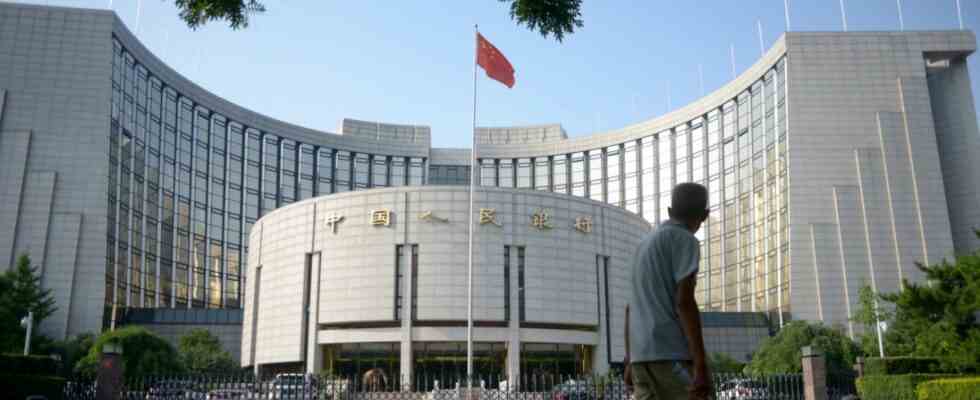Munich – China’s zero-Covid policy has dramatic consequences, both large and small: Chaotic scenes erupted in an Ikea store in Shanghai on Saturday as health authorities began to quarantine the customers present. The trigger was the realization that one of the visitors was said to have had contact with a person infected with corona. In view of the announced quick lockdown, customers apparently fled screaming. Videos on social media show people trying to leave the building before the doors were locked. People know what could threaten them: To contain Corona, the 25 million metropolis had not allowed people to leave their houses for two months in the spring.
But China is not only fighting the virus itself with unusual methods, but also the major economic upheavals. As interest rates rise around the world to fight inflation, China’s central bank is braving the economic slowdown with surprise cuts in key interest rates. On Monday, the bankers cut, among other things, the reference interest rate for one-year loans to some financial institutions (MLF) to 2.75 from the previous 2.85 percent. This is intended to lower the cost of credit for companies and stimulate the economy. The central bank also lowered the key rate for so-called reverse repo transactions to 2.0 from the previous 2.10 percent. These transactions serve to control the liquidity in the banking system.
The growth target of 5.5 percent is unlikely to be maintained
It was the second 0.10 percentage point cut in those rates this year and is expected to stimulate the domestic economy. In the spring, gross domestic product (GDP) increased by a meager 0.4 percent. Financial analysts anticipate that the government’s growth target of 5.5 percent for this year cannot be met. Unlike in Europe, this is not due to energy prices, but to the weakening real estate sector. But above all it is due to the tough corona strategy.
There were increasing signs that the growth momentum was “quickly” slowing down again, which had actually been expected after the interim easing, says Alvin Tan, strategist at the Royal Bank of Canada on the current economic data. The director of the China Chief Economist Forum, Wang Jun, sees only limited opportunities for business leaders in the People’s Republic to boost the economy. Even if lending is made easier, companies and consumers are very cautious about taking on further liabilities in the current situation: “Some are paying off their debts before the deadline. That could be the harbinger of a recession,” warns the economist.

